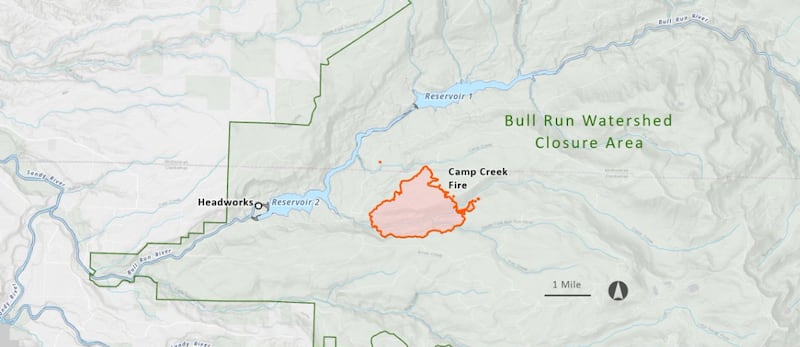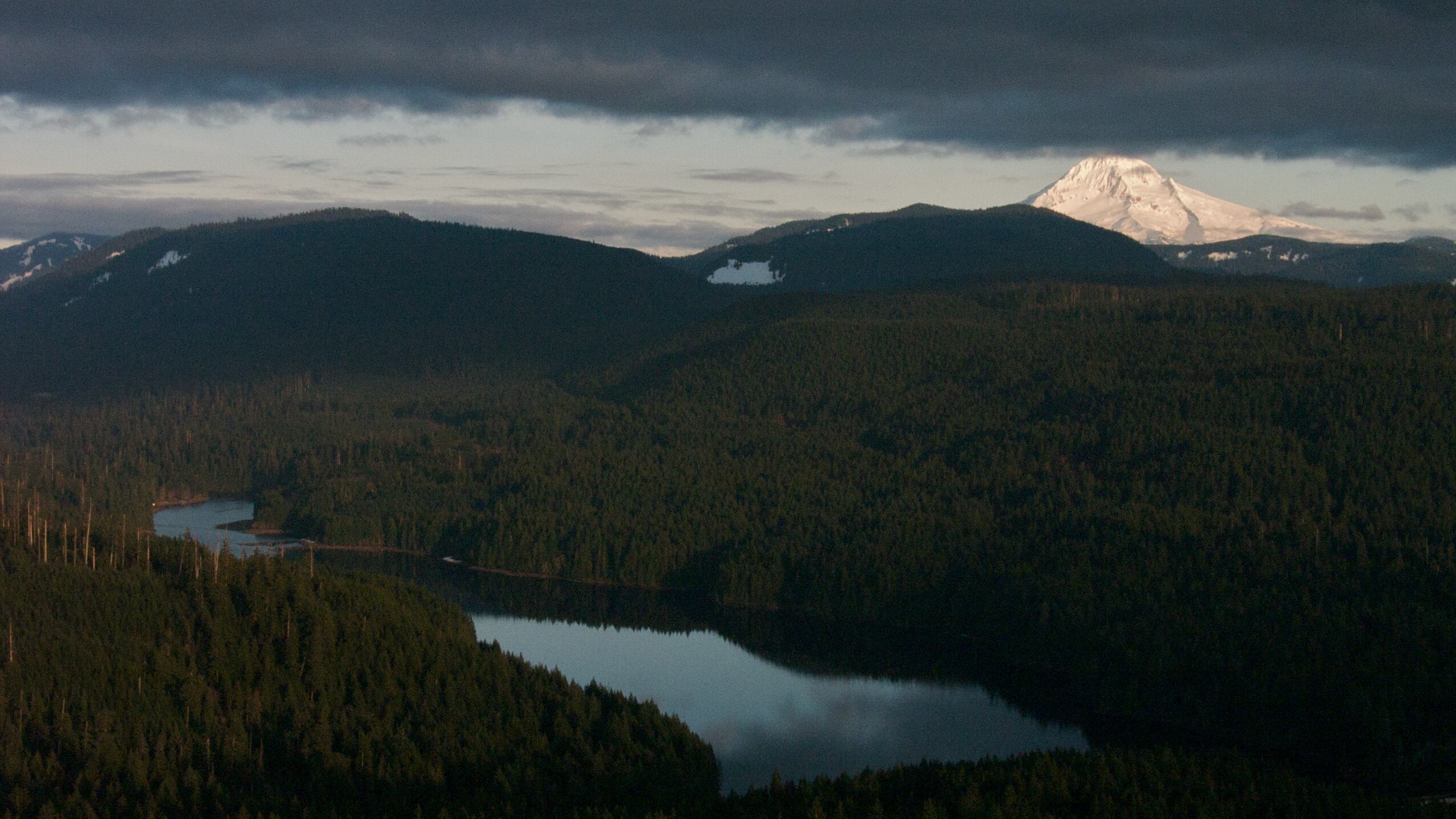The Camp Creek Fire, a 1,200-acre blaze burning in the Bull Run Watershed, was zero percent contained as of Saturday evening, the Portland Water Bureau said. For now, officials added, it poses no risk to the city’s water supply.
The Camp Creek Fire started after a lightning strike Thursday evening. It is burning 1.5 miles from one of the two Bull Run reservoirs and 2.4 miles from the Headworks treatment facility, the bureau said. Geography is helping, for the moment.
“The Bull Run reservoirs provide a natural buffer between the active fire zone and our facilities,” the bureau said.
The U.S. Forest Service, the Oregon Department of Forestry and local fire crews have a ground crew, two helicopters and two airplanes fighting the blaze. They are using fire retardants in some areas but not in exclusion zones that drain into the reservoirs.
“At all times, water quality is rigorously monitored,” the bureau said.
The latest information about the fire can be found here.
According to statements issued by the Water Bureau, the Camp Creek Fire grew from 900 acres to 1,200 acres between 6 pm Saturday at 10 am Sunday. During the same period, it moved to within 2.4 miles of the Headworks plant from 3 miles Saturday evening.

The Bull Run Watershed is 26 miles east of downtown Portland. Its lake and creeks have been the main water source for Portland since 1895, when crews finished laying 24 miles of pipes westward through old growth forests. In 1904, President Theodore Roosevelt signed the Bull Run Trespass Act, halting cattle grazing and other activities in the watershed to protect the rain-fed streams that charge the reservoirs.
Fire isn’t unusual in the Bull Run Watershed, according to the Water Bureau.
“There is evidence that major, high-severity wildfires burned the watershed in 1493, 1663, 1693, 1873, and 1881,” according to the bureau’s website. “The fire in 1493 burned nearly the entire watershed, while the others averaged roughly 5,000 acres, or about 8 square miles. While infrequent, large wildfires can degrade water quality if sediments and nutrients are washed into streams during and after a fire.”
Firefighters likely will get a reprieve from unseasonably hot weather starting Monday, the National Weather Service said.
“Warm and dry conditions will continue today with highs likely in the upper 80s to lower 90 degrees in the inland valleys,” the NWS said. “Cooler temperatures return this week, along with better and more widespread chances for rain.”

